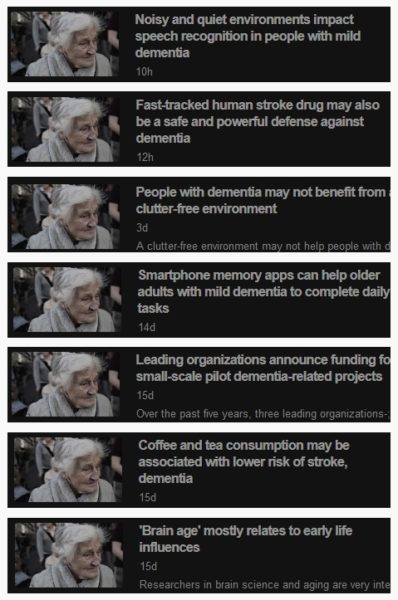Pay to quit, how plastics kill, licorice vs Covid, and more
03 Dec 2021
Posted by Andrew Kantor
Sure, Why Not: Licorice edition
And the latest ‘thing that can treat Covid’ is … licorice! Specifically, suggest Chinese researchers, the triterpenoids in it — they’re known as licorice-saponin A3 (A3) and glycyrrhetinic acid (GA).
[W]e found GA and A3 from licorice potently inhibit SARS-CoV-2 infection by affecting the entry and replication of the virus. Our findings indicate that these triterpenoids may contribute to the clinical efficacy of licorice for Covid-19 and could be promising candidates for antiviral drug development.
They published their results in the Journal of Advanced Research, with lots of charts and images and stuff.

Looks science-y, so it’s probably true
Immunization training THIS WEEKEND
There’s still time to register!
TOMORROW, for TECHNICIANS: GPhA’s Immunization Delivery Training for Pharmacy Technicians — a 6.0 hour CE program consisting of both home-study and live training. It’s tomorrow, Saturday, December 4, from 9:00 am to noon at the GPhA World Headquarters classroom in Sandy Springs. (Of course it’s PTCB-recognized!) Click here for the details and to register now.
SUNDAY, for PHARMACISTS: APhA’s Pharmacy-Based Immunization Delivery: A Certificate Program for Pharmacists this Sunday, December 5, 8:00am to 5:00pm. It’s part of the 20-hour certificate program (including self-study). That’s also in the GPhA classroom. Get the details and register today.
One word: plastics
It’s not news that there are chemicals in plastics that cause health problems. Some, in fact — phthalates — causes heart problems. Now a team from the University of California at Riverside has figured out how. That knowledge brings phthalates from “may cause health issues” to “probably does cause health issues.”
The phthalate (in this case, dicyclohexyl phthalate, or DCHP) binds to a receptor in the gut — a receptor normally used for absorbing cholesterol. By interfering with the receptor, the DCHP causes cholesterol to rise, rather than be absorbed.
And that is why the EPC considers DCHP ‘a high-priority substance for risk evaluation.’ And also why you don’t want your mice near the stuff. (Yeah, so far these tests have been done on mice, not humans.)
Smoking cessation is simpler than we thought
How do you get smokers to quit during pregnancy? Pay them. Yep, that’s what a new study in The BMJ found.
Fewer than half of smokers quit once they’ve got a bun in the over, so it’s a real problem. Counseling and support didn’t do much, but it seems once the greenbacks* were on the table, the results changed — more than twice as many smokers quit, in fact.
Relative to only the face-to-face visits and associated attendance fees, [adding] financial incentives was associated with higher rates of continuous abstinence throughout pregnancy (16% v 7%) […] and a reduction in the risk of poor neonatal outcomes.
* Actually euros — and they come in lots of colors
Just bite the bullet
Sure, you may think you need “the strong stuff” after coming home from fracture surgery. But according to Aussie researchers…
“Our randomized trial found that after going home from fracture surgery, strong opioids were not better for pain relief compared to a milder, potentially safer opioid alternative.”
Kills the bugs, heals the burn
What do you get when you combine acidified nitrite and ethylenediaminetetraacetic acid? A news story on your university’s website, for one.
That combo, which University of Cincinnati researchers dubbed AB569, has a nifty effect: As an ointment, it kills “virtually all pathogenic bacteria” in burn wounds — including the antibiotic-resistant ones. And there’s “no observed acquired resistance.”
But wait, there’s more. It also helps the wound heal:
“AB569 not only kills the bug, it also enhances the wound-healing process. At the same time, AB569 topical application significantly increases the anti-inflammatory mediators…that allow improved epidermal restoration and the healing process to occur more rapidly and efficiently.”
Covid tidbits*
A Dutch study finds that Covid-19 can damage the placenta and cause stillbirths. (Assuming your Dutch is rusty, here’s the story in English, courtesy of Google Translate.)
The Brits have approved a monoclonal antibody, GlaxoSmithKline’s sotrovimab; like the others, it’s to keep people with mild Covid-19 from getting severe Covid-19. (They’ve previously approved Regeneron’s casirivimab and imdevimab combo.)
* To be honest, I’m a bit Covid-ed out — “Covid causes this,” “Covid does that” — so I’m just going to use a lot more ‘tidbits’ in the future.
The face of dementia
This poor woman.

”Some nice young man took my picture today. I wonder what he’ll do with it.”


